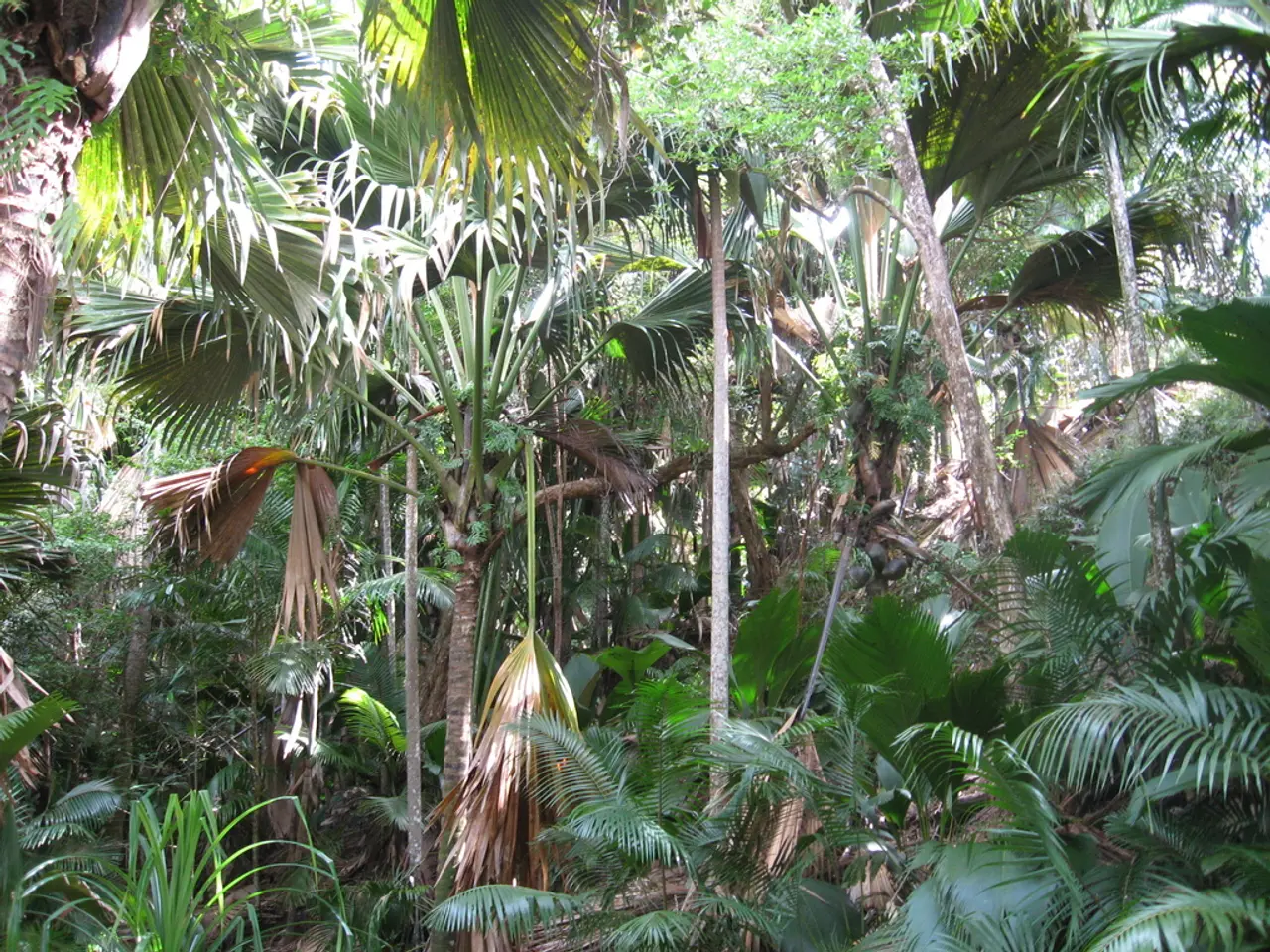Struggling Swamps and Forests Battling Extreme Heat and Drought Conditions
Germany's Climate Change Adaptation Plan Focuses on Forests and Wetlands
Germany's Environment Minister, Carsten Schneider, has outlined a comprehensive climate change adaptation plan that emphasizes proactive measures to increase resilience against climate impacts, particularly focusing on forest management and wetland rewetting.
The plan aims to adapt forest management practices to changing climate conditions, preserving biodiversity, enhancing carbon sequestration, and increasing forests’ resilience against heatwaves, droughts, pests, and storms. This includes sustainable forestry techniques that maintain forest health and support long-term ecosystem services.
Rewetting peatlands and wetlands is another key strategy to restore their natural water balance, reducing carbon emissions from drained soils and enhancing biodiversity. Wetland restoration improves water retention, mitigating flood risks and drought impacts, and plays a vital role in climate adaptation efforts.
Schneider has highlighted that these adaptation strategies are part of Germany’s broader commitment under the Paris Agreement to limit global warming to 1.5 degrees Celsius by enhancing resilience to climate impacts. He stresses that adaptation requires strong action, including nature-based solutions such as forest preservation and wetland restoration, alongside measures to transform Germany’s economy towards sustainability and resilience.
The plan promotes climate-resilient forestry through diversified species, improved soil management, and pest control. It also restores peatlands to natural hydrological conditions to prevent CO2 emissions from peat soil oxidation. Furthermore, it enhances natural water retention landscapes to buffer against floods and drought.
These strategies reflect a holistic approach to climate adaptation, integrating ecological protections with socio-economic resilience, underpinned by international cooperation and Germany’s legal commitment to climate action.
Schneider's initiatives for climate change adaptation now include aid for rewetting wetlands and cultivating moisture on agricultural surfaces. He proposes to provide financial aid for cultivating moisture on agricultural surfaces for the growth of plants like reeds, which can help with moisture retention and potentially store more carbon dioxide, aiding in climate change mitigation.
Moreover, Schneider suggests that street trees and unsealed surfaces in cities can make a difference of several degrees in summer temperatures. He believes that nature, particularly mixed deciduous forests, can help combat heat and drought, as well as heavy rainfall and floods.
The Adapted Forest Management program currently receives an annual budget, with plans to increase it by 10 million euros. The goal of the increased program is to create mixed deciduous forests rich in species adapted to rising temperatures. The proposed aid for cultivating moisture on agricultural surfaces and the rewetting of wetlands is intended to complement this financial aid.
Schneider's initiatives focus on climate change adaptation with funding and new projects, underlining Germany's commitment to combating climate change effects and ensuring a sustainable future.
[1] German Federal Ministry for the Environment, Nature Conservation, Nuclear Safety and Consumer Protection. (n.d.). Climate Adaptation Strategy 2050. Retrieved from https://www.umweltbundesamt.de/themen/klima/klimaschutz/klimaschutzstrategie/klimaschutzstrategie-2050
[3] European Commission. (2021). Adaptation to climate change in Germany. Retrieved from https://ec.europa.eu/clima/policies/adaptation/country/de/de_en.htm
- Germany's comprehensive climate change adaptation plan extends to various sectors, including health-and-wellness, as Schneider proposes financial aid for cultivating moisture on agricultural surfaces to grow plants like reeds, which can store more carbon dioxide, aiding in climate change mitigation.
- Recognizing the importance of science in addressing climate change, Germany's Environment Minister, Schneider, has also prioritized environmental-science with his initiatives, such as the Adapted Forest Management program aimed at creating mixed deciduous forests rich in species adapted to rising temperatures.
- In line with Germany’s broader commitment under the Paris Agreement, Schneider's climate change adaptation strategies encompass both climate-change mitigation through forest preservation, and climate-change adaptation through wetland rewetting, which reduces carbon emissions from drained soils and improves water retention, mitigating flood risks and drought impacts.




